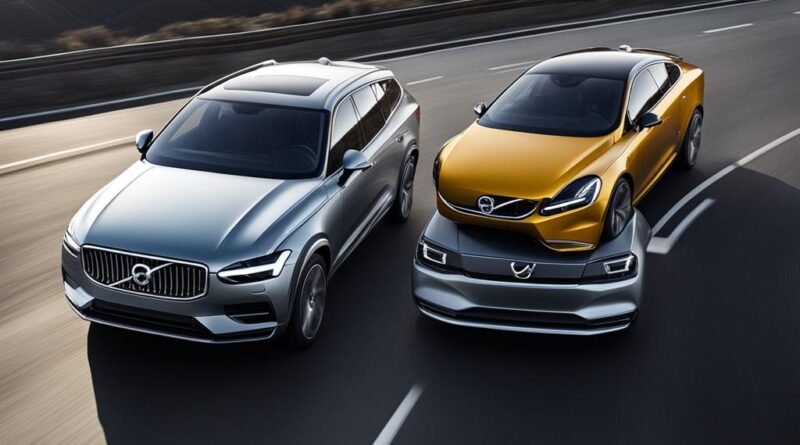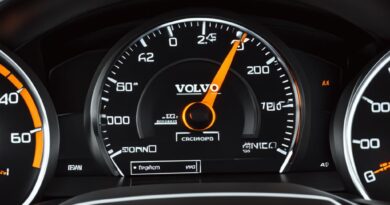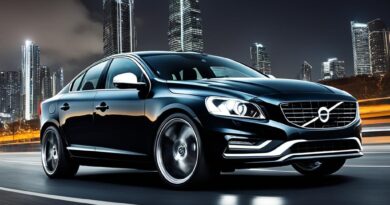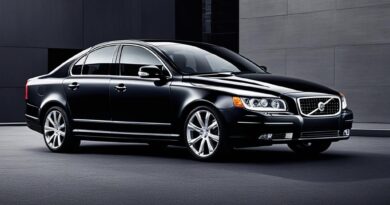Volvo vs Volkswagen: Safety & Performance Reviewed
In the automotive face-off between Volvo and Volkswagen, safety and performance play pivotal roles that may influence your decision. Volvo, with its long-standing Swedish heritage, is best known for its exceptional safety standards, underscoring its commitment to producing vehicles capable of withstanding Sweden’s demanding climate. On the other hand, Volkswagen has carved out a reputation for fuel efficiency and top-tier engineering, appealing to drivers focused on cost savings and dependable performance. Ultimately, the decision between these two brands often boils down to personal preference, as they similarly top the charts in reliability and longevity. With many drivers finding it challenging to favor one over the other, our comparison will dive into the specifics of safety, performance, reliability, and luxury features to help you make an informed choice.
Key Takeaways
- Volvo is renowned for its bold safety standards and is tailored for drivers who prioritize security and resilience.
- Volkswagen excels in fuel efficiency and engineering, making it an attractive option for cost-conscious drivers.
- Both brands exhibit reliable performance and promise longevity, ensuring a worthwhile automotive investment for the future.
- Fuel efficiency plays a significant role in the decision-making process, with Volkswagen often lauded for its superior fuel economy.
- Volvo and Volkswagen both have an unwavering commitment to safety, earning accolades and industry recognition for their efforts in this domain.
The Legacy and Progression of Volvo and Volkswagen
As two renowned automakers, Volvo and Volkswagen have traversed unique journeys from their humble beginnings to becoming symbols of luxury and quality in the global market. Each brand is lauded for its commitment to engineering and customer satisfaction, appealing to drivers with varying needs.
Volvo: From Swedish Roots to Global Recognition
Volvo’s history is rooted in the need for vehicles durable enough to withstand Sweden’s challenging roads and environment. Since its inception, Volvo has expanded its lineup through years of innovation, ensuring a diverse range of offerings suitable for various lifestyles. The sleek S60 sedan and the family-friendly V60 exemplify the brand’s transformation from its Swedish roots to a staple in the global market.
Volkswagen: Engineering Efficiency and Global Appeal
On the other hand, Volkswagen has climbed the ranks of the automotive industry by focusing on mastering engineering efficiency and prioritizing fuel conservation. The brand’s reputation for producing fuel-efficient vehicles has earned it worldwide appeal and a loyal customer base. Additionally, Volkswagen service centers emulate the high-quality luxury car service that Volvo’s customer base expects and appreciates.
Both brands have positioned themselves as premier choices across global markets, appealing to drivers through their commitment to engineering, fuel efficiency, and top-tier luxury car service.
Comparing Reliability and Lifespan
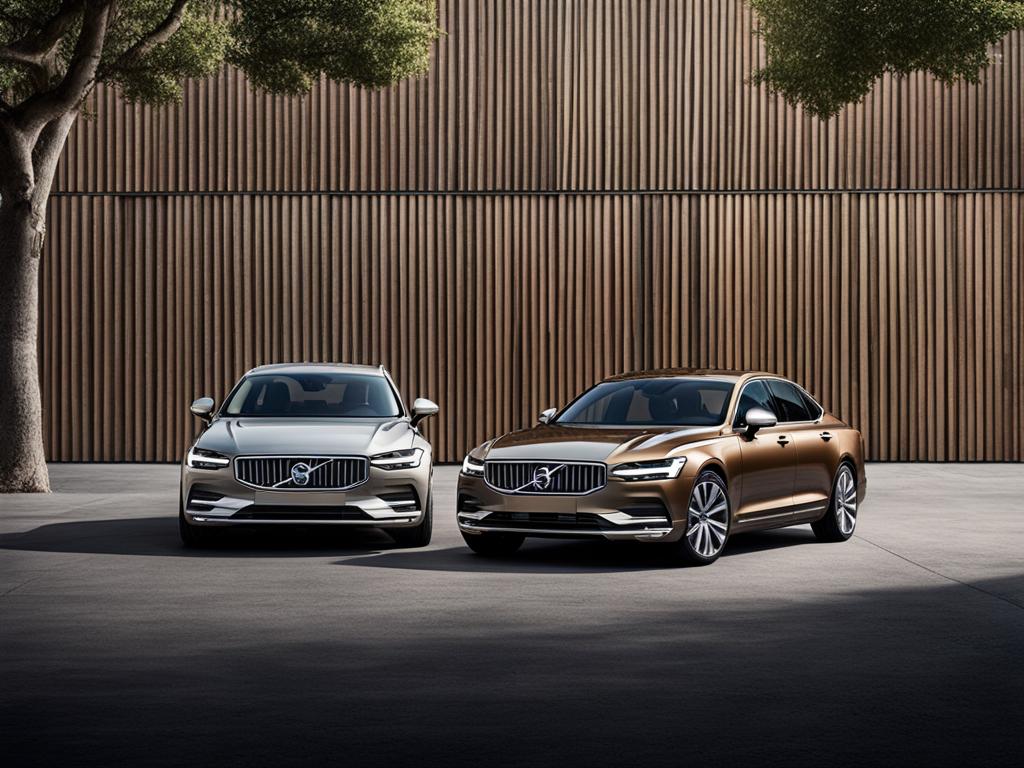
When evaluating the reliability and lifespan of Volvo and Volkswagen vehicles, it’s crucial to consider the differences between the two brands. While some drivers perceive the Volvo S90 as having an edge in dependability, Volkswagen’s advancements are narrowing this gap. In this section, we will explore the factors that contribute to vehicle reliability, and how each brand fares in terms of lifespan and overall performance.
Reliability assessments encompass factors like breakdown frequency, repair costs, problem severity, and the overall vehicle maintenance needed to maintain a vehicle’s optimal condition. To provide a clearer understanding of how Volvo and Volkswagen vehicles compare in terms of reliability, let’s examine some of these factors in detail:
| Factor | Volvo S90 | Volkswagen |
|---|---|---|
| Breakdown Frequency | Low | Low |
| Repair Costs | Moderate to High | Moderate |
| Problem Severity | Low | Low |
| Vehicle Maintenance | Regular | Regular |
| Lifespan | Long | Long |
Both brands have cultivated a reputation for producing durable vehicles that promise longevity, thus assuring consumers of solid automotive investments for the future. When it comes to performance, both Volvo and Volkswagen vehicles exhibit reliable and consistent results, providing drivers with a smooth and enjoyable experience.
In conclusion, while there are some differences in reliability between Volvo and Volkswagen vehicles, both brands deliver exceptional value by producing vehicles with impressive lifespans and dependable performance. Ultimately, the choice between these two automotive giants depends on personal preferences and driving needs.
Volvo vs Volkswagen: Fuel Efficiency Face-Off
In the realm of modern driving, fuel efficiency plays a significant role in the ongoing debate between the advantages of Volvo and Volkswagen vehicles. While both brands are recognized for their distinctive features, it’s interesting to examine their respective approaches towards fuel-efficient car design and the ways in which they contribute to better fuel economy and cost savings for drivers.
The Pursuit of Fuel Economy in Modern Driving
Fuel efficiency has become a central part of modern driving, with more drivers opting for brands that prioritize fuel economy as a way of achieving cost savings and reducing environmental footprints. The benefits derived from superior fuel efficiency not only entail lower fuel costs, but also pave the way to lessened greenhouse gas emissions and a sustainable transition to eco-friendly transportation. The direction of the automotive industry is undoubtedly moving towards increasingly fuel-efficient vehicles, making this a critical arena to explore when considering both Volvo and Volkswagen automobiles.
Cost-Savings at the Pump: A Comparative Analysis
To clearly understand the differences in fuel efficiency between Volvo and Volkswagen, we can examine the fuel economy ratings of select popular models from each brand. The table below presents the Environmental Protection Agency (EPA) estimated combined city/highway miles per gallon (MPG) for the 2022 models of Volvo S60 and Volkswagen Passat, two popular sedans from both manufacturers.
| Car Model | EPA Estimated MPG |
|---|---|
| Volvo S60 | 25 |
| Volkswagen Passat | 27 |
As seen above, the Volkswagen Passat boasts a slightly better fuel efficiency than the Volvo S60, emphasizing Volkswagen’s reputation as one of the leading fuel-efficient car brands. However, such differences in fuel economy do not undermine the quality and reliability of Volvo vehicles. Instead, this comparison showcases the importance of considering individual priorities, such as fuel efficiency or safety features, when choosing between these two esteemed automobile manufacturers.
Volvo vs Volkswagen: In the Safety Arena
When it comes to the safety of drivers and passengers, both Volvo and Volkswagen share a common commitment to excellence. Their dedication has led to exceptional safety ratings for each brand, earning them high praise from insurance institutions like the Insurance Institute for Highway Safety (IIHS).
For the 2022 model year, both brands have been extensively recognized for their crash protection capabilities and advancements in vehicle-to-vehicle and vehicle-to-pedestrian front crash prevention. While Volvo secured 10 awards, the Volkswagen Group claimed 11, showcasing their tireless effort to enhance safety standards across their lineup.
In conclusion, each brand’s achievements in the realm of safety make it challenging to choose between these automotive giants. Regardless of your decision, either Volvo or Volkswagen ensures passenger safety as a top priority, elevating their status as leaders within the industry.
FAQ
How do Volvo and Volkswagen compare in terms of safety and performance?
Both Volvo and Volkswagen are known for providing exceptional safety and performance features. Volvo is renowned for its high safety standards and longevity, while Volkswagen is famous for its engineering efficiency and fuel economy. Ultimately, the choice between these two brands often boils down to personal preferences and lifestyle needs.
Which brand has a better reputation for reliability?
Although some drivers may perceive Volvo, particularly the S90 model, as having an edge in dependability, Volkswagen’s advancements are narrowing this gap. Both brands have cultivated reputations for producing durable vehicles that promise longevity, making them reliable automotive investments for the future.
Is fuel efficiency a significant differentiator between Volvo and Volkswagen?
Yes, fuel efficiency is a key area in which Volkswagen often outperforms Volvo. Known for its fuel economy and engineering prowess, Volkswagen tends to offer better gas mileage than Volvo, accommodating customers looking for cost savings and eco-friendliness.
How do the Volvo and Volkswagen brands compare in terms of safety achievements?
Both Volvo and Volkswagen have been recognized extensively by the Insurance Institute for Highway Safety (IIHS) for their crash protection capabilities and advancements in vehicle-to-vehicle and vehicle-to-pedestrian front crash prevention. They are both considered leaders in automotive safety.
What is the main difference between the historical progression of Volvo and Volkswagen?
Volvo’s roots trace back to Sweden, where its commitment to safety began due to the demands of the rugged terrain and harsh climate. In contrast, Volkswagen’s reputation is built on engineering efficiency with a focus on fuel economy, appealing to drivers who prioritize cost savings and dependable performance.

